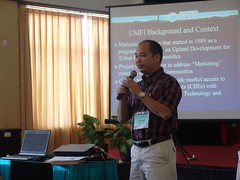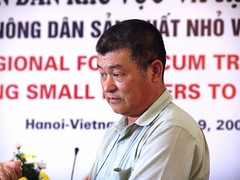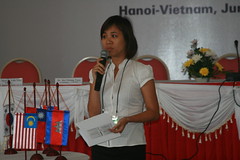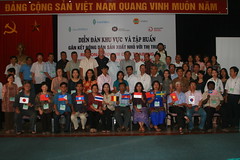Session 4: Presentation 1: Market Positioning/Marketing Strategies
Session 4: Marketing Concepts Strategies and Intermediation Models
Market Positioning/Marketing Strategies
By Dr. Wen-chi Huang, Associate Professor and Chair, Department of Agribusiness Management, National Pingtung University of Science and Technology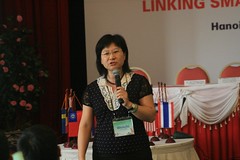 Dr. Huang shared many marketing concepts to the group as a way of leveling off on definitions that would later serve as a good foundation for understanding marketing intermediation models.
Dr. Huang shared many marketing concepts to the group as a way of leveling off on definitions that would later serve as a good foundation for understanding marketing intermediation models.
“Marketing is about making your product identifiable from others. It is not about what you can produce (your capacity) but what the market needs.” There are also different types of marketing: consumer marketing (supplying branded products), industrial marketing (supplying differentiated ingredients to processors and manufacturers) and commodity marketing (supplying undifferentiated raw materials). Another related concept to understand in marketing is quality, or the attributes of the product (usually defined by a set of standards) that will convince consumers to buy it. It is also important to look at the quality of the “total” product, which includes the product, package, and service. In terms of tools, a marketing plan can be developed (for branded products only) to target a select market for a specific product. The key here is to “select your market and not let the market select you”.
We are all aware of the importance of organizing small farmers because of economies of scale. This is also true in applying marketing strategies where organized farmers can work as a team to meet the needs of the markets/different consumers.
Download Market Positioning/Marketing Strategies.ppt
